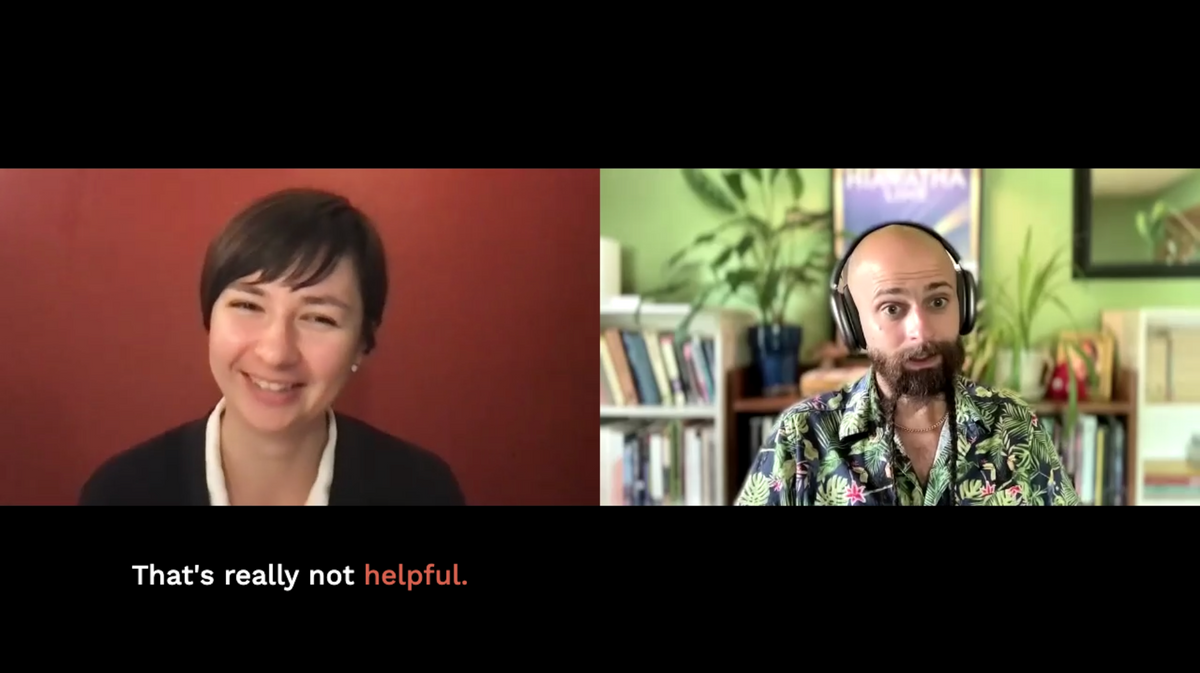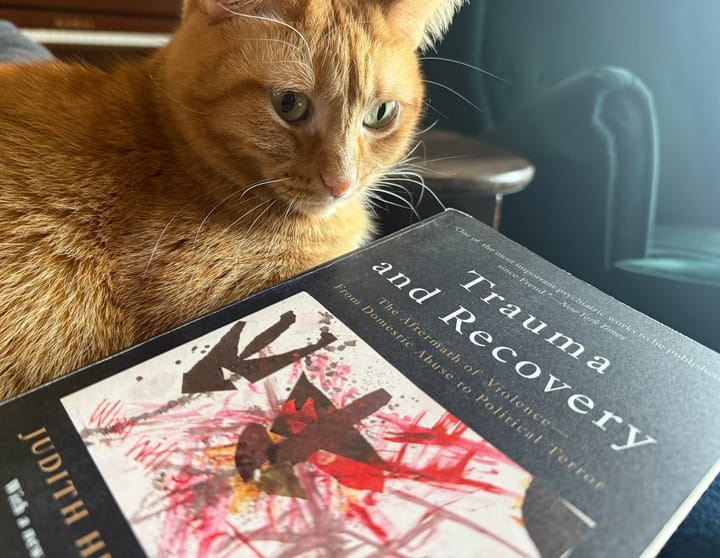Demo session 6: Learning about positive intentions
In Internal Family Systems practice, we take it as given that every part of who you are is doing its very best to keep you alive and safe — but when parts of you are causing you pain, it’s hard to believe they mean well. Listen to how “Michelle” is wary of some of her parts.

Because “Michelle” is actually my friend Alysa Haas, a trained IFS practitioner, she could ask me common questions about how the model works in particularly delightful ways. At this point, I’m explaining that every part of “Michelle” has her best interests in mind:
ASH: You can be assured that whatever you feel, or whatever different parts of yourself you notice, it’s trying to protect you and help you live in the world as well as possible. How does that sit with you?
“MICHELLE”: I mean, yeah. I’m like, yeah, sure...
ASH: But?
“MICHELLE”: I’ll believe it when I see it. … I’m like, yeah, but why? Why do I want to feel like I want to throw up? And the, and the teeth-grinding and stuff? That’s really not helpful! That’s really not helpful!
Good question! The parts of us who communicate with unpleasant physical sensations and habits do feel unhelpful — which is why it’s vital to begin from the premise that their intentions are good.
ASH: My hypothesis is that the teeth-grinding and the feeling like you want to throw up — these are actually different parts of Michelle, who are trying to help you in one way or another.
“MICHELLE”: Why, why would they be doing stuff that hurts and is annoying?
ASH: They might think that there’s no better way. Or no other way to get you to pay attention.
“MICHELLE”: Okay.
ASH: And to be clear, you’re paying attention!
Partswork, like any kind of community-building, takes a leap of faith and trust. Against much evidence to the contrary, we have to believe that every part of who we are — even the parts of us who cause us terrible suffering — is acting only for our good. Taking that leap of faith, over and over, is the work we practice in coaching.
Now that we’ve talked about the theory for a while, I’ll accompany “Michelle” on one more inward turn before our session concludes — which will give us even more opportunities to practice consent.
⏮️ Previous | All clips | Next ⏭️



